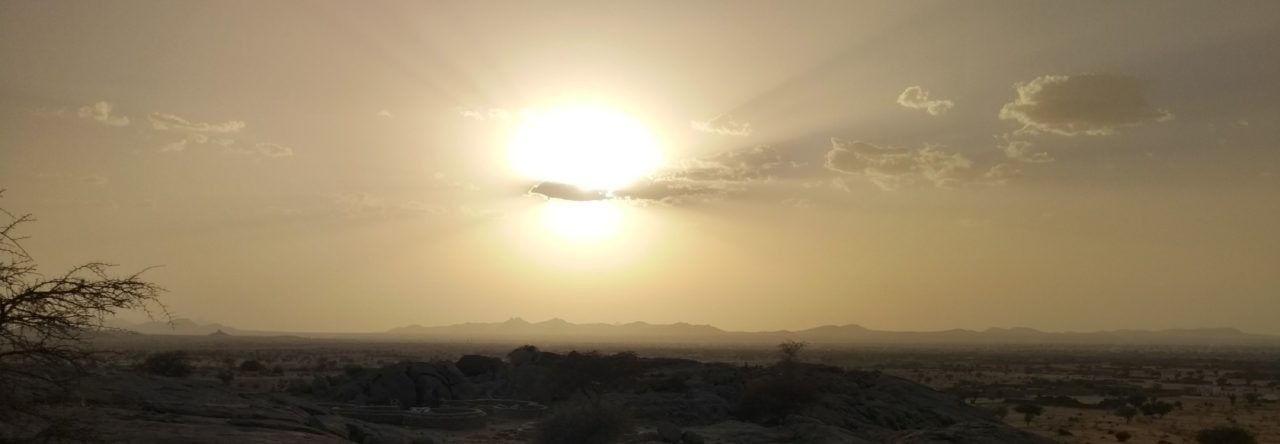Thanks to all those who prayed for my trip this past week. It was very encouraging. We left on Tuesday morning around 7AM, two Land Cruisers loaded down with wood for the construction of two huts. The village elders have previously agreed to give us a plot of land for building on, though it has been a little unclear up until now exactly where. So, one of the purposes of this visit was to determine where our concession will be, to deliver supplies, and to arrange for the work to begin.
The trip from our current home to the village is about 90km (56mi), which on a good day takes about 3 hours. We arrived in the village around 10:30am to find it almost completely empty. All of the people were out in their fields gathering in the millet and peanut harvest. Some camel herders had brought their camels near the village and allowed them to graze in the fields of the villagers. This angered the villagers, but the camel herders are from a well-connected tribe, and the last time the villagers chased the camels away the herders returned with military backup. This conflict between sedentary farmers and nomadic animal herders is not new, but every year there are flare-ups of violence that see dozens of people killed. In fact, our region is current in a “state of emergency” because of violence between the Maba people and the Chadian Arabs. Anyway, these villagers were now highly motivated to gather their crops ASAP, so they were sleeping and eating out in the fields in order to get it done quickly.
After resting for a few minutes we headed out into the fields to greet people. We ate lunch out in the field, prepared by Abdoulaye’s aunt.
After visiting some of the older women we went to look at the village well. One other purpose of our visit was to look at the pump, which has been broken for several years, and determine the specifications for a new system. One of our colleagues here has funding for a project to replace broken well pumps with solar powered pumps and water tanks that will allow access to clean water and will last longer before requiring maintenance. We’ve partnered with him to outfit wells in two Maba villages with these systems, one of the villages being this one.

From the well we went down to the nearby wadi and ate some guavas fresh from the trees. The wadi is a beautiful place full of large mango, guava, and palm trees where monkeys and kids play side by side. The water is almost gone from the surface at this point in the year, but it’s still relatively close to the surface so people come and dig holes to get their daily water supply.
We returned from the wadi, and throughout the evening men trickled in to greet and left again to sleep out in their fields. We were able to hold a brief meeting with the chief and elders to explain our plan for the well as well as for building huts. They were happy with both plans, which was encouraging for us.
We slept outside under a blanket of stars and under literal blankets. This time of year brings cold nights, especially outside of Abeche. Wednesday morning many of the men came by and they discussed the specifics of our plan to build huts there. They marked out the land they would give, and Abdoulaye marked out on the ground where he wanted the huts constructed. The walls of the huts will be made of bricks, handmade and fired by the villagers. They will give us the bricks for one hut as a gift, and the bricks for the other we’ll buy from them. Several thousand handmade bricks is quite a generous gift!

After the impromptu meetings and a few more greetings we took off to see the other well nearby where we plan to replace the pump with a solar powered system. We talked with the villagers briefly, asked some specifics about the depth of the well and how many households are served by it, and then headed on for the final stop of our trip to visit some friends living in a nearby town and drop some of their belongings off for them. After that, mid-afternoon on Wednesday, we headed back to Abeche. We arrived just after dark, exhausted but thankful for a profitable trip.





































